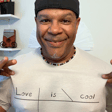Become a Creator today!Start creating today - Share your story with the world!
Start for free
00:00:00
00:00:01

25 | Identity in the D9
What does it mean to be oneself in a fraternity or sorority? In the Divine 9, fraternities and sororities that are members of the National Pan-Hellenic Council, the idea of identity can be somewhat contentious because of our lifelong commitment to our organizations. This episode explores individual identity and how it complements or clashes with our D9 membership.
Disclaimer: I am neither a spokesperson for any Divine 9 organization nor the National Pan-Hellenic Council.
Transcript
Introduction to Ethocast
00:00:03
Speaker
Welcome to Ethocast, a podcast about sound leadership practices to boost life in college fraternities and sororities. I'm Eddie Francis, presenter of Followership to Leadership and the Black Greek Success Program, presentations designed to help Greeks become more ethereal, Effective
Eddie's Leadership Journey
00:00:19
Speaker
leaders. On Ethocast, I'll share lessons learned from my college days, my career journey, and leadership research. Ethocast is a four-hour edification limited series and presented by Edify Ventures. This is Ethocast.
00:00:34
Speaker
Leadership to the letter. And welcome, welcome to another episode of Ethelcast. I'm Eddie Francis and Ethelcast is brought to you by Edify Ventures.
00:00:46
Speaker
And if you are someone who is looking for an edge in public speaking, then Edify Ventures can help you out. All you have to do is log on to eddyfrancis.com. And you can find out how, well, I can help you out with your public speaking. There is a free 30 minute, no obligation brainstorming call that you can do with me to talk about what it is that your public speaking needs might be.
Exploring Identity in Greek Life
00:01:11
Speaker
And so on this episode of Ethocast, I i was really interested and I was really interested in identity, specifically if you are in ah divine nine fraternity or sorority.
00:01:31
Speaker
And at the time that I'm doing this, it is October, about the middle of October, 2025. This is about the time that homecomings are happening at HBCUs.
00:01:42
Speaker
A lot of folks' lines are going to be coming out. And so wanted wanted to talk about what that magic question is when people become members of their fraternities and sororities and their friends who are not in fraternities and sororities come up with that question of, are you going to change on me?
00:02:04
Speaker
So what does identity look like in the divine nine? Yeah, we need to get into it. The views expressed on EthelCast do not necessarily reflect the views of the hosts, guests, or any entities with which this podcast's participants are affiliated. Questions, comments, email eddie at eddiefrancis.com.
00:02:26
Speaker
So there's this thing that I tell people. And the thing is, and when I say it, I say it in jest. But there's this thing that I tell people when I get annoyed with my fraternity.
00:02:43
Speaker
And I'll say, you know what? I'm one step away from being me, fine me anyway. But here's what I mean by that. I mean that I know myself. I know who I am.
00:02:55
Speaker
And I know that being confident in who I am and being comfortable with who I am God forbid if Alpha Phi Alpha were to go away tomorrow.
00:03:08
Speaker
God forbid. Definitely don't want to see that. But if it were to happen, I'm still going to be Eddie. And the thing that I know about myself is that my identity is very much values-based.
00:03:24
Speaker
That is who I am. I am a values-based person. I pride myself on being resilient, being intellectually flexible. I pride myself on how I use my humor.
00:03:38
Speaker
That is something that is always going to be with me no matter what my affiliations are, right? The thing is, is that a lot of people, especially in college, and I remember this being, you know, a lot of conversation when i was, ah new I was in college, I was initiated
Perception and Identity
00:04:00
Speaker
1989. And when I was initiated, I was, uh, I was 18 years old when I was initiated. So I had a lot of things to figure out in life.
00:04:11
Speaker
Right. And so Years down the line, 35 plus years later, um i have figured out who I am. and And that is based on the way I was when i was a student and how I have grown and and where I want to be headed in my life.
00:04:33
Speaker
Students definitely need the language, though, I find to really. help themselves understand how to talk about who they are, but then also to help others understand who they are.
00:04:49
Speaker
And that does include their frat brothers and their sororers. That definitely includes them. So I definitely want to get into this issue of identity to kick it off.
00:05:02
Speaker
And if you're listening to this and you are a member of the D9, And you want someone who is in college, one of your college frat brothers or so Roars to hear this, then they need to hear it.
00:05:20
Speaker
And I'm especially saying this as a father who has, who has a son who's in college right now and who's watching his son navigate a lot of things. My son is not a member of a fraternity. I'm not sure how that's going to turn out, but,
00:05:38
Speaker
I am watching him navigate identity. So let's start with what we need to understand about identity. And who knows that, listen, you could be an alumni brother or soor if youre youre fraternity of sorority, or sorority, and maybe I'll say something that's going to help you as well. Hopefully so, especially if you're someone who's recently initiated into an alumni chapter.
00:06:00
Speaker
But when it comes to identity, what is identity anyway? Identity actually has two components. And I get this actually from a course that I taught, ah a college course that I taught.
00:06:13
Speaker
um The first component is what we think of ourselves. However, there's a second component that a lot of us do not think about, and that's what others think of us.
00:06:26
Speaker
So you say to yourself, now and no no, no, no, no. What I think of myself, that's all that counts. Yes and no. Yes, because what you think of yourself is very important.
00:06:39
Speaker
And what you think of yourself should be the the the lead of the conversation. But what others think of you does count.
00:06:52
Speaker
So I'll use it myself as an example. One of the things that I really love about being me is my sense of humor. And so if someone were to ask me about my identity, I would say something to the effect of I have goofy humor.
00:07:10
Speaker
um Sometimes my humor can be rather deadpan. But you know what? I have a great sense of humor. I'm really good at making people laugh. So I really cherish my sense of humor.
00:07:24
Speaker
However, there are other people who will say, well, Eddie's humor can be a bit inappropriate at times. And sometimes his timing isn't exactly the best. He'll crack a joke when it's really not time to crack a joke.
00:07:37
Speaker
Now, I'm thinking to myself, and okay, that's your opinion. You know, the the big Lebowski, you know, that's like your opinion, man. And so i'm I'm thinking to myself, that that's you, that's what you think.
00:07:50
Speaker
But why is it that what other people think Why is it that that counts? The reason it counts is it doesn't necessarily go away unless you figure out how to address it, whether you want to address it with them or address it with yourself or both.
00:08:11
Speaker
So this is something that I picked up in PR, right?
00:08:16
Speaker
PR, when when i was really, really active and I was doing public relations, especially when i was doing it in higher education and I had presidents who I would work with, the thing that was very frustrating to every single president I worked with was when somebody got something wrong about them.
00:08:40
Speaker
So the question became, well, why did they get this wrong? What is it that they're seeing that you think made them say this thing or what makes them think this thing about you?
00:08:51
Speaker
And you know after some conversation, you know that it comes up, it comes to them. It's like, well, I'm this, that, and other, and that's why, but that's not really who I am. But the thing
Identity Challenges in College
00:09:00
Speaker
is, that's what people think. And what people think, perception is very powerful.
00:09:05
Speaker
What people think is probably going to have more of an impact on you than what you think of yourself, because they're out there saying this thing about you. And so as long as they're out there saying that thing about you, then that becomes a reality.
00:09:21
Speaker
And that's why identity is both. what we think of ourselves and what other people think of us. I used to fight the other half of this thing. I used to fight that whole thing about what other people think of me. I used to be the person who said, well, you know what? That may be what they think of me, but let me tell you what I think of myself and they don't know nothing about me.
00:09:39
Speaker
poor I mean, that that used to be my thing until I realized that that I was doing stuff that would influence how people thought of me. And it wasn't going anywhere until I figured out how to address it.
00:09:55
Speaker
Now, for me, I realized that in order for me to feel like I was being my best self, I had to address it internally.
00:10:08
Speaker
And that worked out. People react a bit differently to me now. Still, you know, that there's still those things that people think of me. But the other part of that is being OK with it.
00:10:23
Speaker
And that's probably the hardest thing when it comes to identity, especially for a college student. It is probably. One of the most difficult things that I dealt with being okay with the fact that I thought of myself as one kind of person in college, but then all these other people said, well, I mean, okay. Is that what Eddie said? Well, let me tell you how I know Eddie.
00:10:47
Speaker
And so with our college frat and sorors, that's one thing we have to get them to understand.
00:10:56
Speaker
And so when people tell them after they have been initiated, You know, and they have done their um they they have done their their their ceremonies and they have done their big reveals and all of that good stuff.
00:11:15
Speaker
And they have these friends who say, you change, you got them letters on and you changed. We we as alumni brothers and sorrows, we have to help them navigate that.
00:11:27
Speaker
And we have to help them understand that just because they don't like what people are saying about them, it doesn't mean it's not true. So we have to figure out how to get our college brothers and Soros to pay it attention to that stuff.
00:11:40
Speaker
And we have to help them figure out how to address it, whether they address it internally or they address it with the person who is saying the stuff. Now, of course, we know on a college campus, there are lot of times you have to address it with other people because people can be messy.
Fraternity Life and Identity
00:12:00
Speaker
Students at every single type of college in America are messy. And that's because of the stage of life that they're in. That's why this conversation is critical. And so the thing that I think a lot of our frat and sorrows have to do in college is they have to solve that mystery for other people.
00:12:22
Speaker
Now, that doesn't mean that they have to go to them. You know, they have to go to them and say, OK, well, let me explain myself. No, no, no, no. That's not what I'm saying. That's not what I'm saying. What I'm saying is that they have to, again, have to change that thing that they're doing internally if they don't like it.
00:12:41
Speaker
Or if they know that people are being messy and just saying BS about them. Yeah, you you got to figure out how to address that. But here's the thing. The thing is.
00:12:54
Speaker
Is is what gives with identity when it comes to your fraternity and sorority? OK. All
00:13:04
Speaker
all right, y'all. Um.
00:13:09
Speaker
Here's what I have learned 35 plus years in a fraternity. Someone who has been a college chapter president, someone who was an officer in other student organizations on campus, someone who had been told, Eddie, you changed.
00:13:28
Speaker
And sometimes that was a compliment, by the way. um I thought I changed for the better when I became an alpha.
00:13:38
Speaker
And then becoming an alumni chapter president and then serving as a college chapter campus advisor, me representing the university to the chapter.
00:13:52
Speaker
And so what gives when it comes to identity in a fraternity or sorority? I have mulled over this for years. So I think there are few things that you got to do and a few things that we have to coach our college frat and sorority on.
00:14:09
Speaker
The first thing is this, getting them to ask themselves a series of questions. One of the first questions is what resonated with you about this fraternity or sorority that you chose to pursue membership for?
00:14:28
Speaker
what meant what What resonated? What made you go, huh? That's the right way for me to go. Their answer has to be their answer.
00:14:40
Speaker
Second question.
00:14:44
Speaker
What is your understanding about what your fraternity or sorority stands for?
00:14:52
Speaker
Maybe another way to ask that is what is your understanding about the culture of your fraternity or sorority? Another question I would ask is.
00:15:04
Speaker
How does the fraternity or sorority that you join feed into your life and who you are?
00:15:14
Speaker
That's probably one of the questions I have asked myself over and over again over the course of years. The other question is this, and this is an important question, I think. um Do you see the growth being mutual?
00:15:29
Speaker
Do you see yourself, in other words, growing because of your fraternity and sorority? And do you see that you are doing something to contribute to the growth of your fraternity or sorority? Now, growth could be.
00:15:42
Speaker
ah Growth could be but a bunch of different things when it comes to the fraternity or sorority. I mean, for a college student, I think growth means something that they help make happen positively on campus.
00:15:55
Speaker
Because if you ask them to think about the entire fraternity or sorority, that is an overwhelming thought. So I think with them, you have to you have to say, like let's let's look at your chapter. What are you doing to contribute to the growth of your chapter?
00:16:09
Speaker
That could be numerically. That could be in reputation. It could be in the awareness of the fraternity the sorority across campus, even if it doesn't grow in numbers, just growing the awareness.
00:16:22
Speaker
And it could be growing something inside of the chapter, like the sense of brotherhood, the sense of sisterhood. There are a lot of ways that we can influence growth in our organizations. And And this is probably the biggest question I think we can ask college members.
00:16:43
Speaker
And that is, will you ever get sick of being a representative of your fraternity or sorority? Will there be a day that That you're going to say, I can't do this anymore because I'm tired of people looking at me.
00:17:03
Speaker
And when they see me, and they see the letters. They never see me. Because I got some bad news for you. When we decide that we want to be a member of a fraternity or sorority in the D9 and we start talking lifelong commitment, guess what?
00:17:21
Speaker
We are tethered to that organization and we made that choice.
00:17:29
Speaker
When we are going through our intake processes, people tell us repeatedly, this is for life. You sure you want to do this? This is for life. And what that means is that at some point, you're going to have to accept the fact that your identity is not always only yours.
00:17:49
Speaker
It does to some degree belong to the fraternity or sorority as well. Now, listen, this is not unique to the divine nine. How many of us out here love our churches so much that we want to be identified as a member of a church?
00:18:06
Speaker
We want to be identified as a member of our of our college alma mater. We want to be identified as someone who is in our profession.
00:18:16
Speaker
We want to be identified with that organization, that company, that institution that we work for because we love it just that much. So this is not something that's unique to us, but it is something to think about because the The demands of servant leadership in the divine nine are pretty profound.
00:18:38
Speaker
And so on the day, the worst day that we have in a fraternity or sorority, it's important for our college members to really, really answer that question on that worst day. You're going to get sick of it and just walk away.
00:18:55
Speaker
What you going to do? Because there's going to be a day that it is going to be an utter i
Perseverance and Commitment
00:19:00
Speaker
embarrassment. To be a member of your fraternity or sorority is going to happen.
00:19:07
Speaker
Some brother is going to do something that's going to make you want to crawl under a rock. Some soror is going to make you do something that's going to have people looking at you sideways like you did it and you're going to have to figure out how to deal with that.
00:19:26
Speaker
Listen, something that's very important for college members to understand is that struggle is normal. Struggle is part of the story.
00:19:37
Speaker
It is part of the membership. You know, my wife, my finer woman, when she and I met and we were courting, when we were talking about taking our relationship to that next level,
00:19:54
Speaker
And we realized that we were very serious about one another. One day she asked me a question that I think would have made a lot of dudes run for the hills.
00:20:06
Speaker
And that question was, can we struggle together? It's so interesting because no one has ever asked me a question like that in a relationship. Yet that question made perfect sense to me.
00:20:21
Speaker
And without hesitation, I said, yes, I can struggle with you.
00:20:27
Speaker
And what she was asking was on a day that seems like it might be our worst day. Are you going to be there? Because I need to answer my own question and decide whether or not I'm going to be there for you on our worst day.
00:20:46
Speaker
And our worst day could be her worst day, but it's ours. It could be my worst day, but it's ours. Right? Right.
00:20:58
Speaker
And i think that i now I've heard people use this metaphor before that you marry your fraternity or sorority in the D9. And I would go with that.
00:21:10
Speaker
I agree with that. I mean, honestly, event if nothing else, if nothing else, if you're in D9 and you're not married and you want to be married, this is actually good training for it.
00:21:23
Speaker
I kid you not. There are times when I joke with people. That being married is like being online all over again. Right? Like seriously.
00:21:35
Speaker
That's what happens in our fraternities and sororities. We sit there. I mean, listen, how many times has something messed up happened in a fraternity or sorority and we got those members who just doubled down? Yeah, that's right. I'm a member of.
00:21:48
Speaker
What have we been doing during this whole denouncing thing? People have been doubling down, tripling down, quadrupling down. Right? But see, it's easy to do it in those times because you are not having to deal with a situation that is so crushingly embarrassing that everybody's gonna look at you and say, dang, did your frat really do that?
00:22:16
Speaker
Did your sorority really do that? Right? is not going to always be 100%. We all know that. But you know, our fraternities and sororities are not always going to be at 100%. And I think that when we start to think about our identities and what the national organization stands for, because sometimes our chapters, sometimes our chapters, just they don't do us any favors.
00:22:47
Speaker
It happens. And when that happens, you have to remember that your fraternity or sorority is more than that chapter.
00:22:57
Speaker
So i think that you have to really, i think that you have to realize that being yourself is okay.
00:23:11
Speaker
Like if you are an outspoken person or if you are very outgoing,
00:23:18
Speaker
And you really like to put yourself out there.
00:23:22
Speaker
That's okay. But you also have to accept. With your identity. That there is a sacrifice. That goes along with being a member.
00:23:34
Speaker
If you know. That something that you're doing. Is going to embarrass the daylights. Out of your fraternity or sorority. Out of your frat. Out of your sorors. If you know it.
00:23:46
Speaker
If you know it.
00:23:49
Speaker
then I do think that you have to consider whether or not your identity really works with the membership. And if it doesn't, you got to be okay with that.
00:24:01
Speaker
And you have to figure out what that, what that move is going to be. Right. But there's also this part of identity where you have to resist the urge to let your letters do the talking.
00:24:13
Speaker
You know, I tell this story, to college brothers, And so where um I, you know, I tell the story about how when I was in college, I started off 4.0 almost.
00:24:29
Speaker
And then my GPA gradually went down and I had to kick, scratch and scream to get out of school. I had to kick, scratch and scream to graduate. And my mother at graduation.
00:24:44
Speaker
I will never forget this um because my mother wasn't in a sorority. My dad wasn't in a fraternity. But my mother said, boy, if it wasn't for that fraternity. And I said, my it wasn't the fraternity. I made some really bad choices.
Navigating Personal Leadership
00:25:00
Speaker
The fraternity's expectations have been very clear. I got our brothers graduate in top of their classes. I'm the one who screwed up. I'm the one who made bad decisions. And part of the part of that bad decision making when I was in college was I became so hyped on being an alpha that I thought that being an alpha would really, really do something for my identity.
00:25:28
Speaker
i wanted I wanted the letters to work for me. And that was a mistake. A lot of college students make the mistake. It is normal. It is so normal.
00:25:40
Speaker
And that's why our role as alumni is so important to be able to catch our college brothers and sisters and help them navigate this.
00:25:54
Speaker
So one of the things that I think that we can teach our college brothers and sorors to do, and quite frankly, i think a lot of us on the alumni level will need it as well.
00:26:07
Speaker
I think that, um, It would be very important to really help people lean into personal leadership. This is something that I actually talked about on episode 10 of this podcast.
00:26:22
Speaker
um And and what I talked about was the fact that engaging in personal growth and development. Within a fraternity or sorority is extraordinarily important to walk through all of these steps, all the stuff that I just talked about.
00:26:37
Speaker
As a matter of fact, I'm going to make a very, very shameless plug here. ah There is a program that I do. I deliver a program called ah Lead by Leading You.
00:26:47
Speaker
It's my personal leadership program. And when I talk to college students about it, um I talk to them about the importance of personal growth and development as a way to learn how to effectively lead others.
00:27:02
Speaker
I talk about the top 10 obstacles that leaders face. um And then also, mostly, I talk to students in this program about how to get the most out of their lives.
00:27:15
Speaker
out of their student organization members, out of their fraternity brothers, out of their sorors, how to get the most out of them to have what is called high quality exchanges.
00:27:27
Speaker
And I define that there's a specific definition for a high quality exchange in an organization where people are willing to go the extra mile for one another so that they can communicate and collaborate and make great things happen together.
00:27:43
Speaker
So I think that for us, it is incredibly important that if we if we were to engage ourselves, look in the mirror and really engage in personal leadership, use whatever tools we have at our disposal.
00:27:59
Speaker
Right. If it's journaling, um if it is meditating, if you are a person of faith, engaging in your faith practice more deeply.
00:28:10
Speaker
um For me, one thing that has helped me out tremendously over the past two years is that I have gone to see a therapist who put together a fantastic treatment plan for me.
00:28:21
Speaker
I have felt um like my whole self. ah for probably the past year very easily. But whatever it is for you, whatever it is for you to engage in personal leadership, to grow and to develop so that not only you are filling your cup, but you are filling the cup of your fraternity or sorority, starting with your chapter.
00:28:45
Speaker
I think that that is something that can really help you maintain a solid
Conclusion and Engagement
00:28:50
Speaker
identity in your fraternity or a sorority. So anyway, thank you so much for listening to me blab on about identity in a fraternity or sorority.
00:29:00
Speaker
Look out for me on TikTok, by the way. I started this series called D9 Old Head Wisdom. And so um hang out with me, Eddie Francis 06. All right.
00:29:10
Speaker
Thank you so much. And you be good. Ethocast is a for our edification limited series. If you like what you heard, like and follow this podcast for more leadership insights for your fraternity or sorority chapter. To find out how you can bring followership to leadership or the Black Greek Success Program to your campus or a campus near you, email today, eddie at eddiefrancis.com. Until next time, spread brotherly and sisterly love wherever you go.



















